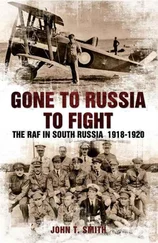“It’s not a question of who feels more,” the boy said. He was pulling a pebble back and forth across the tile with a foot. Felix leaned against the car. “Soph? Soph? Look, I can’t talk now. Of course not! My phone was dead. No, not now. Please calm down. Soph, I’m in the middle of a thing. Soph?” The boy took the phone from his ear and looked at it curiously for a moment. He slid it back into the pocket of his coat. Felix whistled.
“Ninety-nine problems. I hear you, bruv.”
“Sorry — what?”
“The car. It’s got some problems.”
“Well, yes,” said Tom Mercer, and made an expansive gesture that meant to take in the whole vehicle. “Of course, it’s clearly a project car. This is not something you’re going to drive away in. Hence the price. Otherwise we’d be talking in the many thousands. Clearly a project car. Let me open it up, give you the full tour.”
Felix watched Tom wrestle with the key.
“I can do that if—” began Felix. The door popped.
“Just needs a wangle. Project car, as I say. But doable.” The tour turned out to be somewhat limited. “Clutch” said Tom, and “Gears,” and “Steering wheel,” brushing these objects vaguely with his hand, and then, as they both looked dolefully at the moldy, curled carpet and rusted floor, the wool and wire bursting out of the stained upholstery, the hole where the radio should be, he murmured the year of manufacture.
“Year I was born,” said Felix.
“Then it’s fate.”
Now the boy read off a series of facts from a small piece of paper he took from his pocket: “MG midget, one thousand five hundred cc Triumph 14 engine, 100,000 on the clock, manual, petrol, two-door roadster, transmission requires—”
Felix couldn’t resist: “Two doors, yeah? Got it.”
Tom blushed appealingly. “My father’s list. Not really a car man myself.”
Felix felt moved to pat him in a friendly way on his high, bony shoulders. “Just messing with you. Can we get a look under the hood?”
It creaked open. Beneath was all the bad news he could have hoped for. The battery overwhelmed by rust, the cylinder cracked. Pistons right through to the engine block.
“Salvageable?” asked Tom. Felix looked perplexed. Tom tried again: “Can it be saved?”
“Depends. What sort of money we talking about?”
Tom looked once more at his piece of paper.
“I’ve been instructed around the thousand mark.”
Felix laughed and reached his hand into the engine. He scratched at the rust with a fingernail.
“To be honest with you, Tom, I see these come in every day, in better condition than yours, much better — for six hundred. No-one’s gonna pay six hundred for this. This one you won’t be able to sell to no-one but a mechanic, I promise you.”
The sun now hit the car directly: the bonnet lit up. Radiant wreck! Tom looked up, squinting.
“Good thing you’re a mechanic, then, isn’t it?”
There was something funny about the way he said it. Both men laughed: Felix in his big gulping way, Tom into his hand like a child. The phone in his pocket started up.
“Oh Jesus — look, it’s not really any skin off my nose, but if I tell my father I took less than seven hundred I’ll never hear the end of it. Personally I’d much rather be back in my bed. Excuse me a second — Soph, I’ll call you back in one minute—” But he kept the phone to his ear and Felix heard more than he wanted to as Tom mimed apologies at him. At the end of the road, a happy roar rose up from a crowd at one of the pub’s outdoor tables. Tom raised his eyebrows quizzically at Felix and made the “lifting a pint” gesture: Felix nodded.
• • •
“What’ll you have?”
“Ginger beer, thanks.”
“Ginger beer and?”
“Nah, that’s it.”
“Look, for me it’s hair of the dog — least you can do is join me.”
“Nah, I’m all right. Just ginger beer.”
“My father says there’s only two sentences a self-respecting Englishman should accept in this situation: I’m on antibiotics and I’m an alcoholic .”
“I’m an alcoholic.”
Felix looked up from the slats of the wooden table. Tom wiped the sweat from his forehead, opened his mouth but said nothing. Felix took a moment to appreciate that his own skin could not broadcast shame so quickly nor so well. Tom’s phone started up again.
Felix rose up from the bench: “Don’t worry, mate, you take your call. I’ll go. Pint, yeah?”
Outside it was a glorious Saturday lunchtime in late summer; inside it was ten o’clock at night on a Tuesday in October. The ceiling black and carved into hexagons, the carpet light-absorbing and dark green. Coffin-wood furniture, ancient and heavy. One old man sat in the corner by the jukebox, in a shabby donkey jacket, with white papery skin and yellow hair and nails, rolling a cigarette — he looked like a cigarette. At the bar, a skinny-legged old girl perched on a stool counted and recounted four piles of twenty-pence pieces. She stopped this activity to stare frankly at Felix, who only smiled back. “All right,” he said, and turned to the barmaid. The old woman sliced suddenly at the towers of coins with the side of her palm. Felix’s reflexes were quick; he saved one pile from flying off the bar altogether. In his peripheral vision he saw Tom heading for the toilets. The barmaid mouthed “sorry” and screwed a finger into her temple. “No worries,” said Felix. He took a cold glass in each hand. He let the barmaid put a packet of salt-and-vinegar crisps between his teeth.
• • •
“How old are you, Felix?”
“Thirty-two.”
“But why d’you look younger than me?”
Felix split the bag of crisps down the seam and laid them out on the table.
“Is it. How old are you?”
“Twenty-five. I’m already losing my bloody hair.”
Felix bit down on his straw and smiled round it: “My old man’s the same way. No wrinkles. Genetics.”
“Ah, genetics. Explanation for everything these days.” Tom shielded his eyes with his hand, to make out the sun was bothering him. Felix’s gaze was intense — he met your eyes no matter how you tried to avoid it — and Tom was not used to looking at even his closest friends that way, no matter a perfect stranger to whom he hoped to sell a car. He took a pair of sunglasses out of his pocket and put them on. “And how did you get from working in film to mechanic-ing, if you don’t mind me asking?”
“I’ve done all sorts, Tom,” said Felix cheerfully, and got his fingers into position to count them off. “Cheffing, that’s where I started — I did a GNVQ in catering, didn’t I — got quite far with that when I was younger; head chef at one point at this little Thai place in Camden, all right place; chucked that in, did a bit of painting and decorating, bit of security, you know, in the clubs, bit of retail, drove a truck delivering them crisps you’re eating round the M25, worked for the Royal Mail,” said Felix, with an accent so peculiar it was hard to imagine who was being impersonated. “Used to make these.” He pointed at his chest. “Then got lucky, got into some stuff — you know the Cot-tes-low?” asked Felix, slowly, as a way of marking all the vital Ts. “It’s a theater,” he explained, abandoning all the Ts and adding an F, “near here. Was front of house for a year, box office that means. Then I was assistant backstage putting the props where they needed to be, all that — that’s how I got into the film thing. Just very very lucky. Always been lucky. But then I really got deep in the drug thing, to tell you the truth, Tom, and I’m just basically picking myself up off the floor from that the past few years, so.”
Читать дальше











